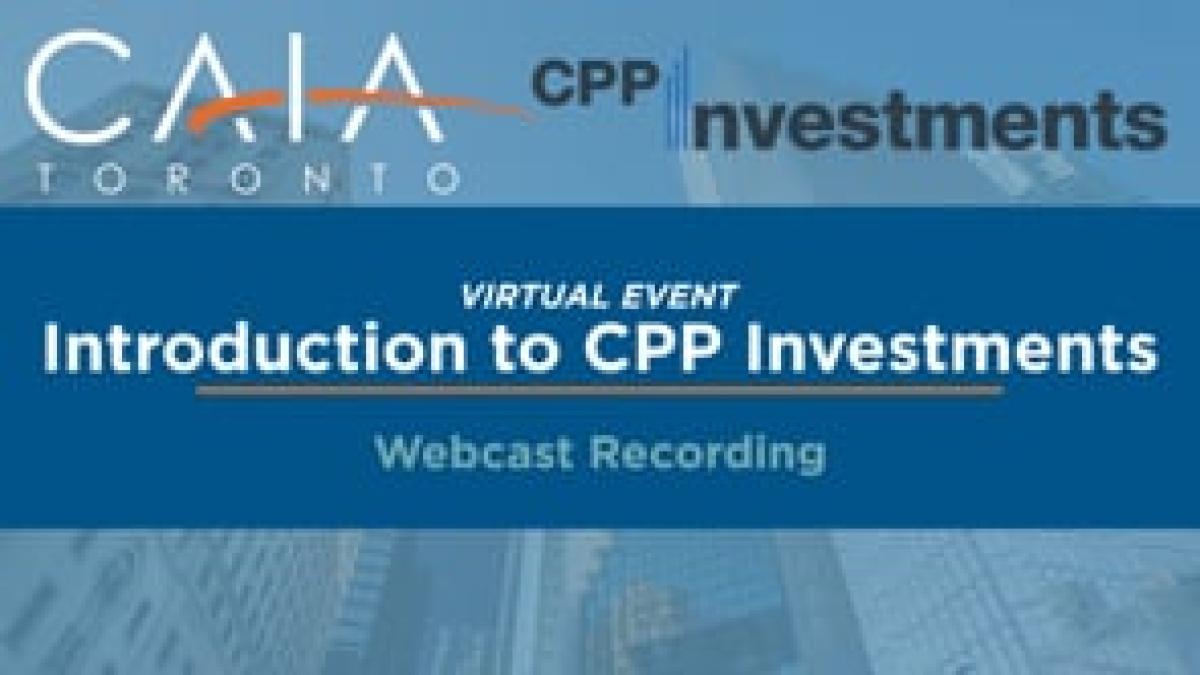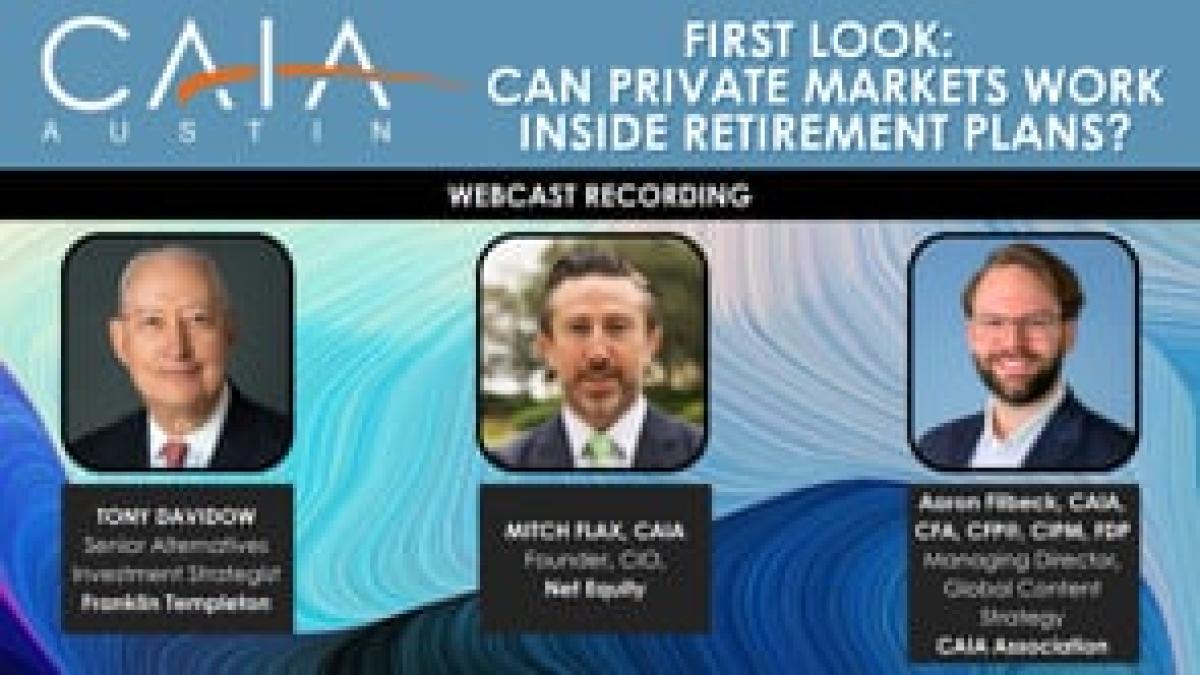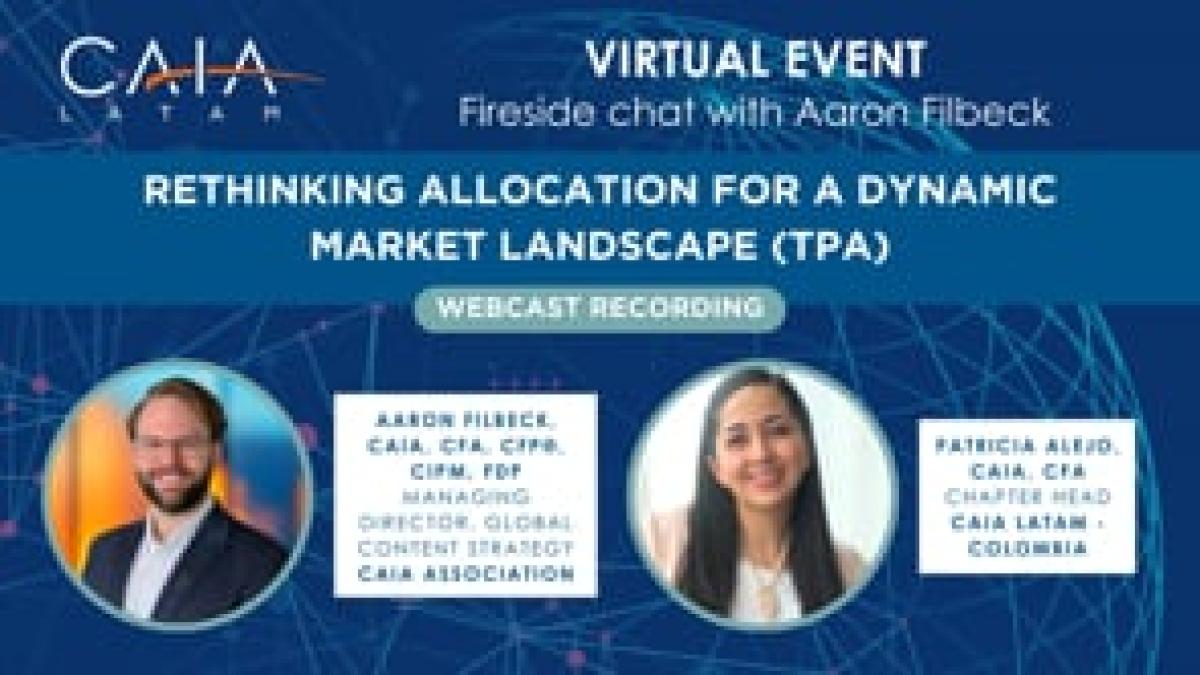Recorded Webcasts
This event covered:
• Who we are, what we do and how we invest across companies, countries and sectors
• CPP Investments’ relationship with the CPP
• Why CPP is expected to be sustainable for at least the next 75 years
Mastering the CAIA exams requires more than just understanding the material—it requires strategic exam preparation. This invaluable webinar featured Steven Novakovic, CFA, CAIA, Managing Director of Educational Programs, and Kristaps Licis, Director of CAIA Exams. They offered advice on effective test-taking strategies and exam preparation to ensure every Candidate is fully equipped for success. This is a chance to enhance your exam readiness and gain insights directly from our experts!
Watch for an in-depth exploration of Latin America’s evolving financial landscape — from investor perceptions to technological disruption. This session uncovered the region’s untapped potential, analyzing macroeconomic and political contexts, demographic shifts, and the rise of fintech innovation. Discover how financial literacy, sustainable investing, and the growing influence of women and young investors are reshaping wealth management across LATAM. Learn why the transition from product-selling to holistic planning and the push for ethical standards and certification are vital for the next generation of advisors.
Key Themes Covered:
- Rethinking global perceptions of Latin America’s investment opportunities
- Navigating currency volatility and post-pandemic economic recovery
- Building financial literacy as a foundation for wealth creation
- Embracing fintech, digital transformation, and ESG-driven strategies
- Aligning with CAIA standards to elevate professional excellence in the region.
This session provided an exclusive opportunity for Candidates to ask any questions about taking the CAIA exam.
Mastering the CAIA exams requires more than just understanding the material—it requires strategic exam preparation. This invaluable webinar featured Steven Novakovic, CFA, CAIA, Managing Director of Educational Programs, and Kristaps Licis, Director of CAIA Exams. They offered advice on effective test-taking strategies and exam preparation to ensure every Candidate is fully equipped for success. This is a chance to enhance your exam readiness and gain insights directly from our experts!
The landscape of retirement investing is rapidly evolving, and the inclusion of private market assets in defined contribution plans is emerging as a key topic of debate. Join us for a forward-looking panel discussion that explored the practical, regulatory, and investment implications of incorporating private markets into retirement plans.
In this webcast, we traced the evolution of investment strategies through the lens of the Total Portfolio Approach (TPA), as outlined in CAIA's seminal report, Innovation Unleashed: The Rise of the Total Portfolio Approach. In an era defined by constant change, TPA equips investors to identify and capitalize on emerging opportunities, fostering the development of resilient and dynamic portfolios. As the investment landscape continues to evolve—where virtually every asset class is now considered an alternative—the future of investing beckons. Are you ready to explore this transformative journey?
Guest Speakers:
- Adam Garrett, MEng (Oxon), MBA (IUJ), CQF, CAIA, CIO of New Asia Ferrell Asset Management
- Jean Zhou, Founder of Wind Entertainment
Moderator : Theodore Shou, CAIA, CFA, Greater China Chapter Executive, CIO, Skybound Capital












